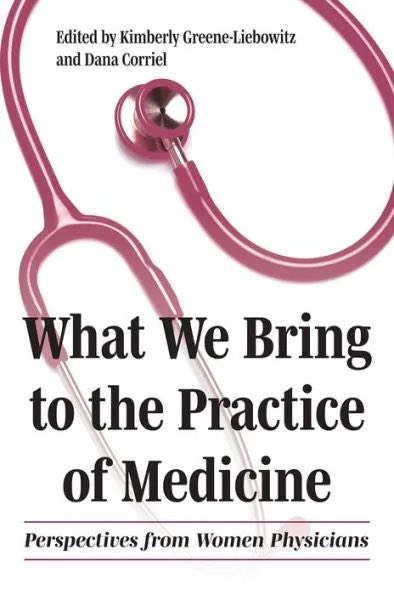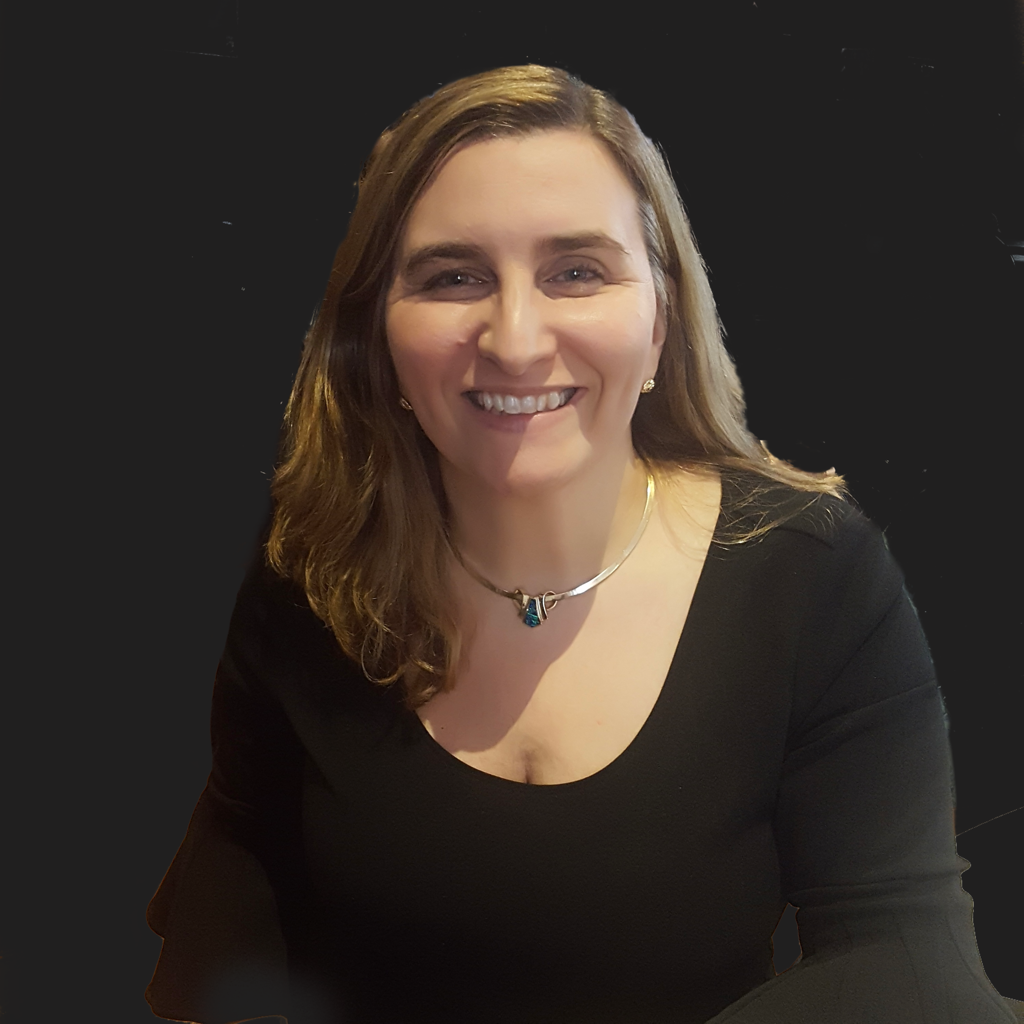What We Bring to the Practice of Medicine: Local Physician Co-Authors Book
- Wednesday, 12 April 2023 08:19
- Last Updated: Wednesday, 12 April 2023 08:44
- Published: Wednesday, 12 April 2023 08:19
- Joanne Wallenstein
- Hits: 3592
 Greenacres resident, mother and physician Kimberly Greene-Liebowitz recently co-edited a book of personal essays from female physicians working in diverse fields of medicine around the world. Liebowitz and Dr. Dana Corriel invited colleagues in the field to share their thoughts and experiences on training to be a doctor, barriers to career advancement and success and the challenge of balancing demanding professional lives with domestic responsibilities, highlighted during the. COVID-19 pandemic.
Greenacres resident, mother and physician Kimberly Greene-Liebowitz recently co-edited a book of personal essays from female physicians working in diverse fields of medicine around the world. Liebowitz and Dr. Dana Corriel invited colleagues in the field to share their thoughts and experiences on training to be a doctor, barriers to career advancement and success and the challenge of balancing demanding professional lives with domestic responsibilities, highlighted during the. COVID-19 pandemic.
“What We Bring to the Practice of Medicine” includes 40 essays about which Dr. Suzanne Koven says, “Some are sad, funny, infuriating or inspiring. All are unforgettable.”
The book is published by Kent State University Press and is available in print or audio. See the links below.
We spoke to Greene-Liebowitz about the book and her experiences as a parent in Scarsdale and here is what she shared:
What inspired you to write the book?
Dana Corriel, my partner in this project, came up with the idea. She had started to see some collections of writings by women physicians and wanted to create something curated and edited. She had started to solicit submissions when I reached out to her to discuss the book. We realized during that conversation that we balanced each other out well, so we decided to partner up. She's got a very big social media audience and her own company, so she's able to publicize in a way that I am not. Our alliance has broadened our contacts. I have experience with writing and revising, have taken multiple writing classes and written several books, so I bring writing and editing skills to the table. While it wasn't my idea at the beginning, I have found it a fascinating experience - I've met a lot of people, seen a snapshot of others' experiences, and been able to bring these stories to the public. Given all the issues around healthcare, I think these essays offer incredible value by humanizing physicians and allowing those considering a career in healthcare to see what it looks like for women who are literally "in the trenches."
Who is the target audience?
The target audience includes those interested in learning more about the challenges facing women physicians; parents of girls interested in STEM fields; women physicians and their supporters; and anyone who has known or been cared for by a female physician. It's edited for a lay audience, and relatable for non-physician providers, so we would be thrilled to see interest from others as well.
How did the pandemic influence the content and the process for having it published?
We started the project before the pandemic, and then when things really took off in March 2020, we had to try to work on the book with kids and spouses at home. Our physician-authors were working incredibly hard so getting edits back was difficult, delaying book completion and proposal submission. Once we started submitting, though, I imagine our process was the same as everyone else's. I just looked back over the email file where I keep the rejections, and it felt like there were a ton, but really, there weren't so many. With regard to the pandemic: I made the decision that we needed to include a piece about the pandemic, and that's Katharine Miao's essay. It's a beautiful snapshot of those early months when we were watching COVID race across the globe, wondering when it would strike.
How did you go about recruiting the other physicians to write to select topics?
Dana runs a company called SoMeDocs. She posted a request for submissions on all the social media (LinkedIn, Instagram, Facebook, and Twitter) associated with her company, including her website (doctorsonsocialmedia.com); and together we posted requests for submission under our own handles on physician-only social media groups on Facebook. In addition, we reached out to people we knew personally or who we had "met" in these physician groups to seek submissions.
How has the experience for becoming a doctor changed for women since you did your training? Dr. Kimberly Greene-Leibowitz
Dr. Kimberly Greene-Leibowitz
Oh, lord... that's a long conversation. First, there are more women entering medical school than there were before. In 2019, for the first time, the number of women matriculating exceeded the number of men. So the demographics of medicine have been shifting. Fields that were very male-dominated have become less so; when I was in medical school, emergency physicians were described as adrenaline junkies who carried scalpels and emergency airway kits in their pockets. If you look at this caricature from Dr. Glaucomflecken, you'll see the stereotype. I don't think that's true anymore, and that's just my specialty.
With a broader lens, medicine is different because things that were tolerated in the past are no longer standard. I wrote an essay about this in the book - but we had no "me too" and locker room humor was standard. I prided myself on being "one of the guys" and that's just how things were at the time. I can't speak for others, of course, but my perception is that a lot of that has changed. The locker-room humor has definitely disappeared. Now there is talk about providing places for women to pump while breastfeeding which NEVER would have happened in the 90s. There's still a lot of places that don't offer maternity leave to residents, but it is expected that attendings will have maternity leave. There is better understanding of the differential demands on women, and some places - such as University of Penn - have changed the whole way they structure tenure to accommodate this. At Penn, those seeking tenure can take a three year path or a six year path. The longer path allows for outside commitments - young children, aging parents, etc.
How has your perspective as a physician affected your experience of being a mother in Scarsdale … what do you like about the community and the schools and what would you like to see changed?
Again, this is a long, complicated answer. I'm going to answer it in pieces:
A - It's a lot easier to be a mother when you're a physician, because there is so much you can manage at home without seeking help. It's also a little paranoia-inducing, if you let it be, because you know all the terrible things that can happen. And it alters the way your kids are treated. When my son was five days old, he had what was called an ALTE at that time - an Apparent Life Threatening Event. Basically, he became cyanotic, but it looked so different from anything I could have anticipated that it took me a moment to realize what it was. He then spent fifteen days at Westchester Medical Center, being worked up for all manner of horrible things. The last thing they tested him for before we were discharged was something called Congenital Hypoventilation Syndrome. It affects about 1000 people worldwide. I have no doubt he was tested for that because I was a physician. That's not a test they're offering to the standard patient.
B - As for being a mother in Scarsdale... I have had my share of people asking for medical advice in weird places (birthday parties, ice cream stores, school plays) but the biggest impact on my experience in Scarsdale has been during the past few years. I'm going to try not to ruffle too many feathers but... I have a Master of Public Health in Epidemiology, and one of the best skills I acquired during that master's program was learning how to really read a study, understand statistics, and understand data quality. The bottom line is that not all studies are created equal, and you can a) always make statistics lie and b) say whatever you want in the abstract, even if it bears little resemblance to your actual results. This has made me much more critical of medical information provided by agencies, professional associations, etc. As a result, I had a lot of difficulty with the medical decisions made by the district during the pandemic. They felt rooted in advice from agencies rather than in data from studies, and in spite of my best efforts to get the district to permit the creation of a medical advisory board, they rejected my efforts. I worked with Rich Schutzer on that, and I like to think that if we'd had a team of physicians, we might not have made choices I agreed with 100%, but we also would have considered issues not adequately evaluated by the district. Further, the person who the district relied on for medical decisions is a retired pediatrician who advises seventeen districts and, by his own admission, left clinical practice because there were too many changes. It felt (and continues to feel) very irresponsible to me.
C - Community: in many places, being a physician makes it hard to fit in - it makes you "different." It's nice to be in a place where it's just my job, not something that puts me on a pedestal.
D - Change: As above with the district. They need better (and more!) medical advisors, because medicine/healthcare is complicated. They need people who are parents of kids it the district - not just grandparents - because we have a different perspective and risk calculus. The truth is that a team works better than an individual in nearly all cases. With a broader lens, i.e. not just considering the medical advisory issue, I think the district should be thinking about mental health, physical health, and learning in a completely different way. There should be a more global view that incorporates the entire K-12 structure. For example, there are still a lot of kids with pandemic-associated anxiety. This can result in more days of school missed, more stomach and headaches, greater disability, greater risk for failure. It can't be fixed with one or two counselors or the same medical advisor. How do you take a global approach to helping kids manage anxiety from the time they are very little? Is it an in-class approach? Holding more kids back? Reducing demands so some kids graduate in five years? Is it biofeedback? Group support? Reducing what we expose young kids to so they are less stressed? We aren't doing any of that.
Buy the book here:
Amazon: https://www.amazon.com/What-Bring-Practice-Medicine-Perspectives/dp/1606354493
Barnes & Noble: https://www.barnesandnoble.com/w/what-we-bring-to-the-practice-of-medicine-kimberly-greene-liebowitz/1142637933
Bronx River Books: https://www.bronxriverbooks.com/book/9781606354490
Kent State: https://www.kentstateuniversitypress.com/2022/20652/






